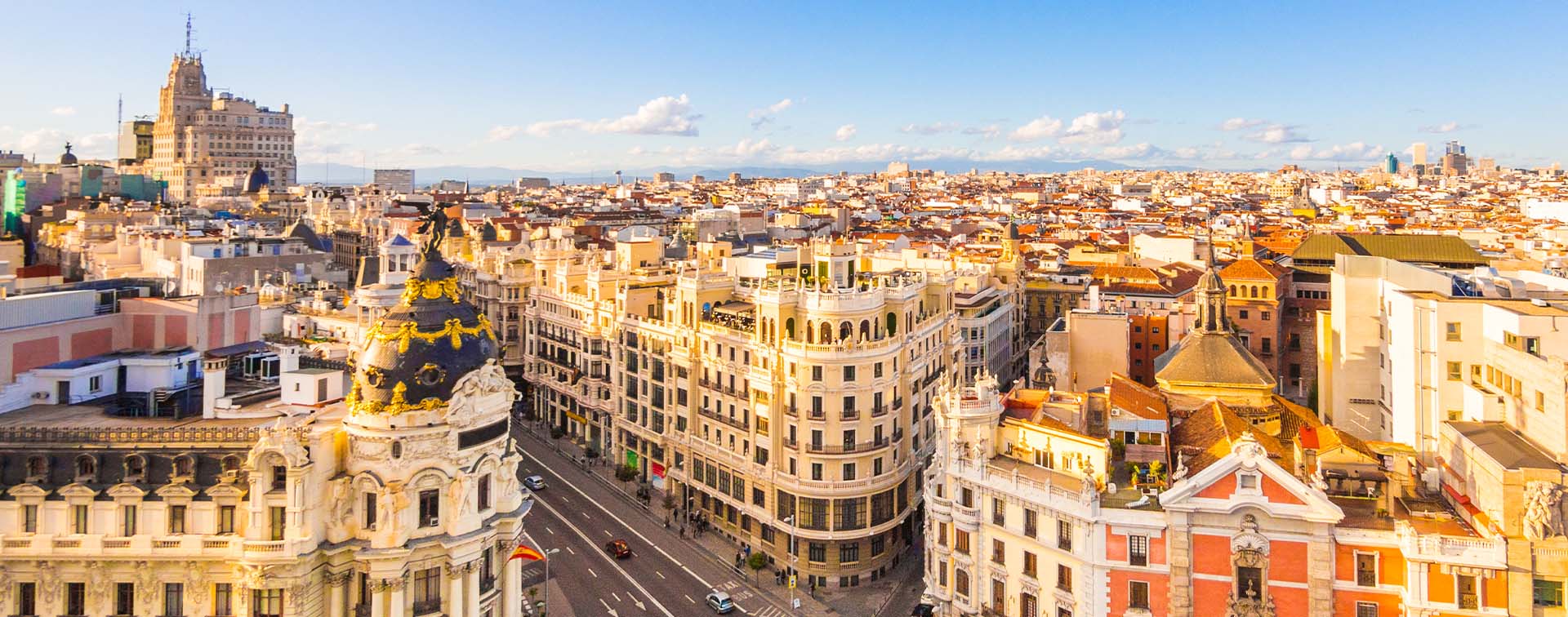
Thomas Scott is Group Head of Real Estate at Henley & Partners
Despite the current inflationary environment and various challenges faced by property markets globally, such as interest rate hikes, the impact of the war in Ukraine on energy, and escalated construction costs due to supply chain disruptions, real estate-linked investment migration programs are demonstrating their resilience. As alternative investments such as cryptocurrency and NFTs are considered risky by some investors, more and more are turning to the age-old wisdom of Mark Twain to “buy land, they’re not making it anymore”.
High-net-worth individuals have been investing in brick and mortar as a long-term strategy to grow their wealth for centuries. Today, the added benefit is that a range of attractive real estate investments qualify them for an alternative residence or an additional citizenship — invaluable asset classes in times of volatility.
Real estate prices are estimated to rise by 2% across 25 global property hubs in 2023, regardless of the impending recession that seems inevitable. Based on a survey by Knight Frank, on average, wealthy individuals in China, the UK, the USA, and Singapore (listed in descending order) own between 1.5 and 3.8 properties. It is anticipated that a large proportion of these affluent homeowners will invest in a new property this year, which will further strengthen the prime real estate sector. It is expected that real estate investment will remain a preferred asset class for individuals looking to protect their capital and mitigate the impact of rising inflation for the foreseeable future due to its perceived stability and reliability as an investment option.

Europe’s prime real estate market is largely set to grow, with many countries, including Portugal, anticipating a rise in property prices. Despite residential property in metropolitan Lisbon and Porto no longer qualifying for the highly coveted Portugal Golden Residence Permit Program, the country continues to attract investors from Asia, the UK, and the USA.
Pre-pandemic, European investors acquired second homes in Portugal and Spain that they would occupy only during their summer breaks but as more adopt remote working and run their businesses digitally, many are becoming full-time homes. Demand for residential beachfront, mountain view, and off-the-grid properties is growing in tandem as investors capitalize on the ability to live and work from locations of their choice. Furthermore, savvy developers have created commercial real estate solutions for investors, including fully managed and serviced luxury apartments offering lucrative returns and the flexibility that enables them to utilize the properties for short breaks as they wish.
Investors from across the world — and China, India, the UK, and the USA in particular — are keen to secure their right to live in this vibrant Mediterranean country by applying for the Spain Residence by Investment Program (also known as the Spain golden visa), where the real estate option requires a minimum investment of EUR 500,000 for one or several properties. According to Knight Frank’s survey, Madrid ranked as the 10th most popular city where high-net-worth individuals plan on purchasing real estate in the next two years. In Q3 2022, property prices in Malaga, Madrid, and Valencia experienced the highest growth since 2021 (7.4%, 7%, and 5.6%, respectively).
Although Spain’s national property prices increased by 8% year on year as at Q2 2022, the numerous economic pressure points that are expected to arise are likely to cause prices to weaken this year. Real estate prices are forecast to increase by only 1%, below the inflation rate, resulting in negative growth in real terms for the year. However, this situation may present an opportunity for investors with significant capital who are interested in purchasing a property in Spain for long-term investment purposes. Moreover, obtaining residence in Spain would guarantee their right to reside, work, and study in the country, as well as travel visa-free across Europe’s Schengen Area.
Malta’s real estate market has shown its resilience, with investors predominantly opting for property in St. Paul’s Bay, Mellieha, Balzan, and Sliema, according to PwC’s Investment Barometer. Over 51% of the local investors in PwC’s survey confirmed their appetite to invest in property in the coming year. To protect Maltese investors from rising mortgage costs, the government announced it will grant EUR 10,000 over a 10-year period to first-time buyers of property valued at less than EUR 500,000, backdated to the beginning of 2022.
Many foreign investors have been drawn to cosmopolitan Malta and purchased real estate to qualify for permanent residence or Maltese citizenship by naturalization. Malta’s Granting of Citizenship for Exceptional Services by Direct Investment Regulations provide for a residence path which may allow for the granting of citizenship by a certificate of naturalization to foreign individuals and their families who contribute to the country’s economic development.
One of the investment requirements for citizenship by naturalization in Malta is purchasing a residential property for at least EUR 700,000 or leasing a residential property for at least EUR 16,000 per annum, while the required minimum real estate investment for the Malta Permanent Residence Programme is a property purchase of EUR 350,000 (EUR 300,000 in South Malta or Gozo) or a property lease of EUR 12,000 per annum (EUR 10,000 in South Malta or Gozo) held for a minimum of five years in either case.
Greece offers one of Europe’s most affordable real estate-linked alternative residence programs, requiring only a EUR 250,000 investment. This is set to change on 1 May 2023, when the minimum threshold will double for properties in most of Athens, as well as Mykonos, Paros, Santorini, and Thessaloniki.
The Greek housing market remained buoyant despite immense pressures due to the pandemic. Investment in the real estate sector grew from 14.6% in 2020 to 26.5% in 2021, construction activity (measured in m3) increased from 5.9% in 2020 to an impressive 45.9% in 2021. In Q3 2022, Athens saw a 10.8% increase in its residential real estate prices over the previous 12-month period, a considerable appreciation that will most likely have benefited Greece’s Golden Visa Program investors.
The ongoing social uprisings in Iran and the prolonged war in Syria have caused significant unrest in the neighboring Middle East, leading to a steady outflow of investors who are seeking a better future for their families. Many of these individuals, including business owners and wealthy families, have turned their attention to Türkiye, which offers geographic proximity and socio-cultural affinity with their home countries. As a result, there has been a surge of interest in the Türkiye Citizenship by Investment Program, which has become increasingly popular.
Despite facing its own internal economic and political challenges, Türkiye’s real estate market has experienced significant growth, with Istanbul showing the strongest annual urban real estate price growth in Q3 2022 on Knight Frank's Global Residential Cities Index Q3 2022. The city's real estate prices surged by a remarkable 212.1% compared to the previous year, providing foreign investors with notable returns. Ankara and Izmir also performed well, taking the 2nd and 3rd spots on the index with year-on-year price increases of 196% and 185.8%, respectively. It is important to note that Turkey and Syria have recently experienced devastating earthquakes, and our thoughts remain with all those who have been impacted as they focus on rebuilding.
The Caribbean, which has always been a popular destination for the rich and famous, is attracting and retaining foreign investors from countries such as Canada, the UK, the USA, and various European nations. The rise of the digital revolution has revolutionized the way people work and conduct business, and as a result, many globally mobile individuals are choosing to establish more permanent bases in these business-friendly islands that are surrounded by turquoise seas.
St. Lucia’s real estate market has a predominantly British base of investors, with almost 90% of foreign buyers coming from the UK. Due to limited supply, the market is lucrative, with one-bedroom properties priced at well over USD 2.5 million. St. Lucia also attracts foreign investors through its popular citizenship by investment program, which can be accessed by investing USD 200,000 in St. Lucian real estate. This amount was reduced from USD 300,000 as of 1 January 2023, making the program even more appealing to potential investors.
Antigua and Barbuda, which is located nearby, has also been successful in attracting foreign investors. The Antigua and Barbuda Citizenship by Investment Program, which requires a minimum real estate investment of USD 200,000, has been a significant draw. Additionally, its innovative tax and legal ecosystem has made the country an attractive destination for investment. According to Savills, Europeans account for 25% of international real estate investors, while British investors make up a significant 60% of foreign property investors.
The lifting of travel restrictions has led to an influx of affluent investors traveling to the Caribbean, which has further bolstered demand for properties with seafront views, branded residences with access to marinas, and serviced apartments in glamorous golf estates. With the added benefit of having alternative citizenship, many investors are choosing to make the Caribbean their new home instead of just a Plan B option.
Investment migration programs that include real estate options are increasingly popular among international real estate investors due to the numerous advantages they offer. Apart from the potential long-term gains of the asset, additional properties can provide rental income in stable currencies, diversify one’s portfolio geographically, and offer residence rights in multiple countries or another citizenship, which can result in distinct lifestyle or business advantages. Owning a property linked to an investment migration program can grant access to visa-free travel to multiple destinations, greater global mobility, increased security, improved access to premium education, and more extensive business opportunities, making it a valuable asset in a volatile world.